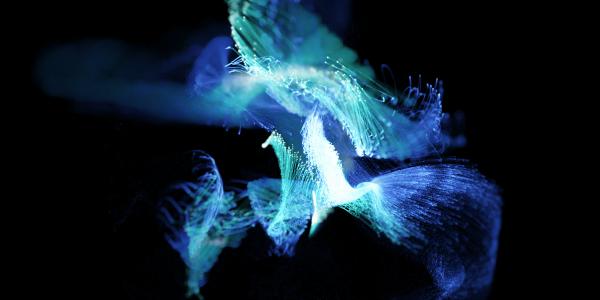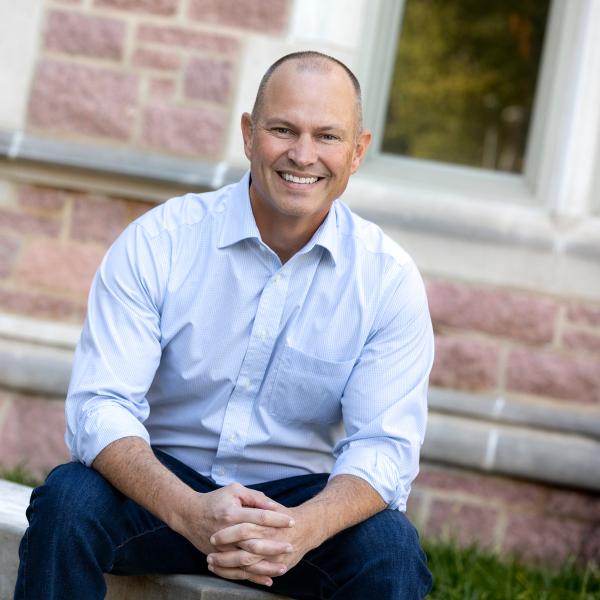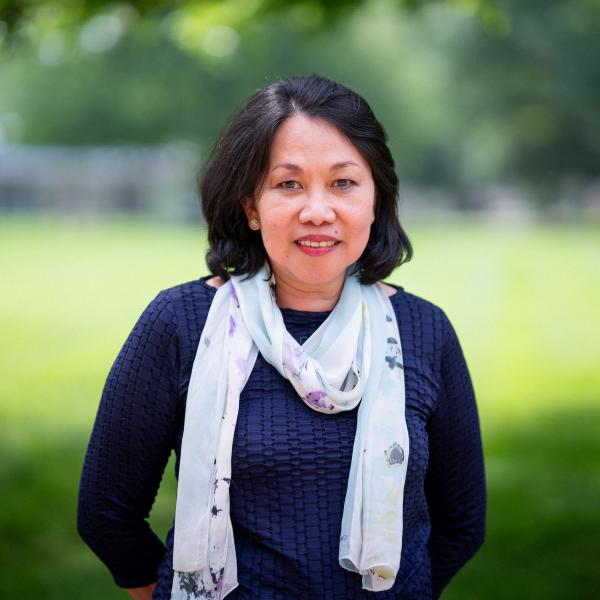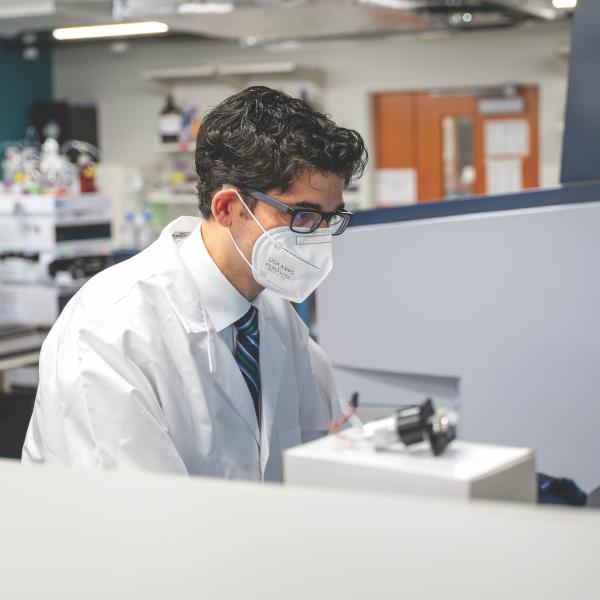Dean Hu’s initiative infuses new talent and novel approaches across disciplines. In addition to seven hires who arrived earlier this year, 12 scholars plan to join Arts & Sciences in 2022 as part of the initiative.
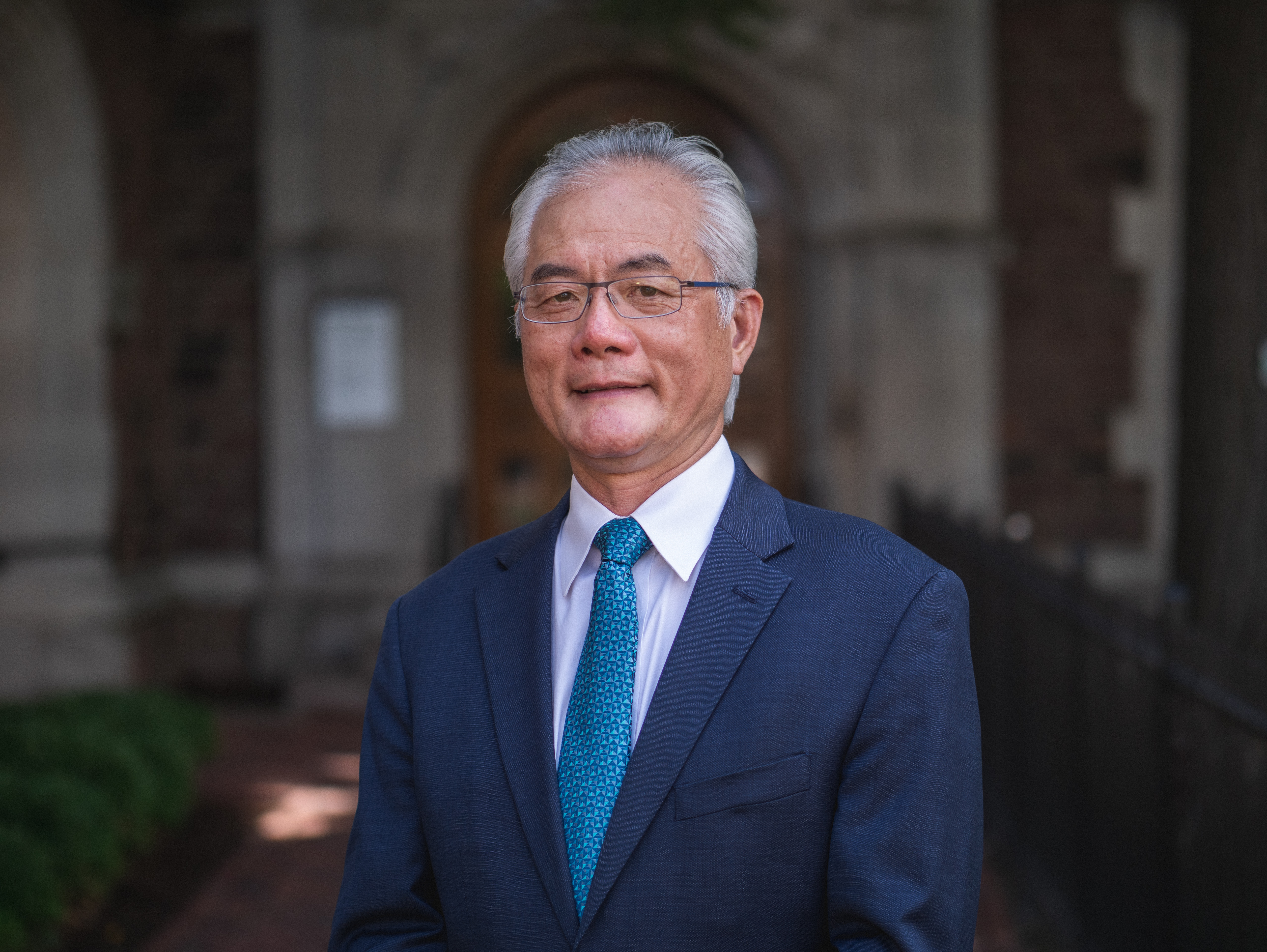
Last spring, under the leadership of Dean Feng Sheng Hu, Arts & Sciences launched a large-scale hiring initiative aimed at bolstering capabilities in data analytics and digital technologies. Hu, dean of Arts & Sciences and the Lucille P. Markey Distinguished Professor, aimed to hire 14 new faculty members to help drive transformative change across the humanities, social sciences, and natural sciences. To date, seven new scholars have already joined Arts & Sciences, with 12 more set to arrive in 2022.
“It is an important moment to support and encourage emerging areas of research and student interest, and I foresee many new opportunities for convergence and collaboration as we welcome a new cohort of data scientists and digital scholars to Arts & Sciences,” Hu said when the initiative was announced. The new and incoming scholars deliver on this aspiration, bringing new approaches to expand and transform existing fields of study, and crossing traditional academic boundaries to enrich research and teaching capabilities within departments, across the school, and throughout the university.
For example, the Department of Chemistry looks forward to the arrival of three interdisciplinary researchers who explore questions at the intersections of chemistry, physics, environmental science, and engineering. The Department of Physics will welcome researchers in astrophysics, joining the already strong astrophysics faculty and establishing WashU as a leader in this area. The Film and Media Studies program welcomed Ian Bogost as its new director as well as scholars in Chinese language media studies and Black digital media practices, strengthening connections between new media studies, African and African-American studies, East Asian studies, and the McKelvey School of Engineering.
“I’m very excited to be part of the new Digital Transformation Hiring Initiative!” said incoming chemistry professor Kade Head-Marsden. “I’m looking forward to being part of an energetic community and the research that will be inspired by collaboration across disciplines and departments.”
As departments announced new hires in recent months, enthusiasm spilled beyond the Danforth Campus and onto social media, where incoming researchers have shared their excitement about coming to Washington University as part of this distinctive cohort.
“I am quite literally the happiest I have ever been to share that I will be an assistant professor in the Department of Psychological & Brain Sciences at Washington University in St. Louis starting in fall 2022,” Emily Willroth wrote on Twitter, noting the wealth of collaborative and interdisciplinary research opportunities. “Landing a job in my dream department/university in my hometown is the best and most surprising thing that has ever happened to me. I don’t think I will ever take this remarkable gift for granted.”
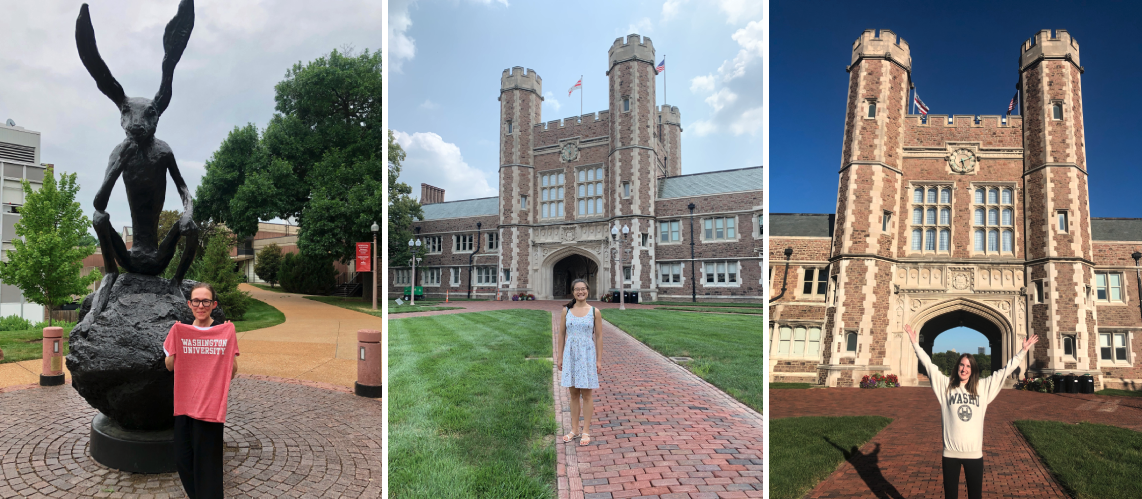
Digital transformation hires
Ian Bogost joined Film and Media Studies as director and professor. Bogost is a philosopher, computationalist, and award-winning game designer internationally recognized for his writing on video games and new media studies. He is the author of 10 books, most recently Play Anything: The Pleasure of Limits, the Uses of Boredom, and the Secret of Games.
Alex Chen will join the Department of Physics as a research assistant professor. Chen is a theoretical astrophysicist using computer simulations to understand the physics of plasmas near extreme objects such as neutron stars and black holes.
Jianqing Chen joined the Department of East Asian Languages and Cultures and Film and Media Studies as an assistant professor. Chen’s research focuses on Chinese language media studies, spanning cinema and media culture in China, Hongkong, and Taiwan, new media technologies and aesthetics, surveillance, global techno-capitalism, post-socialist culture and critique, and feminist media theory.
Kade Head-Marsden will join the Department of Chemistry as an assistant professor. Her research program will explore the intersection of open quantum systems with electronic structure and quantum information with a focus on adaptability to encourage collaboration across chemistry, physics, and engineering.
Ian Hollenbaugh joined the Department of Classics and the program in Linguistics as an assistant professor. Hollenbaugh’s research focuses on the tense and aspect systems of Indo-European languages from both diachronic and synchronic perspectives.
Elizabeth Hunter joined the Performing Arts Department as an assistant professor of drama. Hunter is a critical theorist and digital maker exploring the future of live performance and emergent technologies. Her research asks what happens when we inhabit the space of a famous story, and the story seeps into ours.
Andrew Jordan joined the Department of Economics as an assistant professor. Jordan uses the tools of economics to study labor markets, discrimination, and criminal justice. By applying economic modeling and structural methods to data from criminal justice institutions, he seeks to understand how agents in the criminal justice system respond to incentives and why different groups have different experiences within that system.
Robert Lunde will join the Department of Mathematics and Statistics as an assistant professor. Lunde is interested in prediction and inference for data with complex dependence structures, such as networks and time series, with the major research aim of studying the properties of various resampling methods.
Raven Maragh-Lloyd joined the Department of African and African American Studies and Film and Media Studies as an assistant professor. Her research focuses on Black digital media practices and their connections to power, resistance, and longstanding efforts of community building and preservation.
Roger Michaelides will join the Department of Earth and Planetary Sciences as an assistant professor. Michaelides is a radar geophysicist working at the intersection of geospatial science, Earth surface processes, and applied radar engineering. His research focuses on developing and applying novel techniques and methodologies towards studying Earth’s surface, hydrologic cycle, and climate system.
Debashis Mondal joined the Department of Mathematics and Statistics as an associate professor specializing in data science and statistics. Mondal’s research interests include spatial statistics; computational science and machine learning; and applications in environmental sciences and ecology, including microbial ecology.
Lucia Motolinia will join the Department of Political Science as an assistant professor. Motolinia’s research combines observational data, natural experiments, and text-analysis to better understand how electoral institutions affect political behavior and outcomes, with an emphasis on the mechanisms driving the behavior of individual politicians and parties.
Andrina Nicola will join the Department of Physics as an assistant professor. Nicola works at the intersection of theoretical and observational cosmology, where she is developing novel data analysis methods using machine learning and artificial intelligence to combine data from several cosmological probes to better constrain cosmological models and shed light on the physics of galaxy formation.
Anthony Schlimgen will be joining the Department of Chemistry as a senior scientist where he will combine his expertise in electronic structure calculations of transition and heavy metals, theoretical methods in correlated electronic structure, and quantum chemistry and dynamics to bring novel approaches to the quantum computing regime.
Jessie Sun will join the Department of Psychological & Brain Sciences as an assistant professor. Sun investigates the connections between well-being and morality in real-world contexts using a diverse methodological toolkit, including experience sampling, naturalistic audio recordings, informant reports, and personality change interventions.
Robert Wexler will join the Department of Chemistry as an assistant professor. Wexler's research will be focused on theoretical innovation for renewable energy and environmental applications, with an emphasis on the development of computational methods for more realistic modeling.
Anna Wilke will join the Department of Political Science as an assistant professor. Wilke’s research focuses on the comparative politics of developing countries, mainly in Sub-Saharan Africa. She specifically explores the interaction of state and non-state efforts to establish order and combat crime.
Emily Willroth will join the Department of Psychological & Brain Sciences as an assistant professor. Willroth’s research focuses on well-being and health across the lifespan. Willroth investigates how well-being changes over time and applies her findings to examine links between well-being and important health outcomes in older adulthood, such as chronic illness, mortality, and dementia risk.
Yajie Yuan will join the Department of Physics as an assistant professor. Yuan works on building first-principles models for the high energy processes powered by black holes and neutron stars, using both theoretical analysis and state-of-the-art, large scale numerical simulations to model plasma dynamics and particle acceleration.

